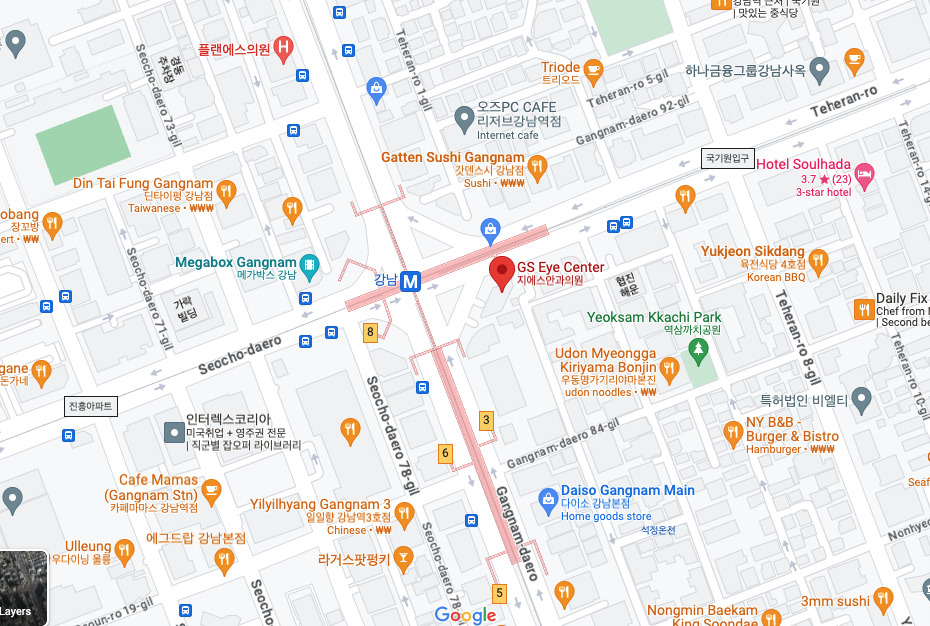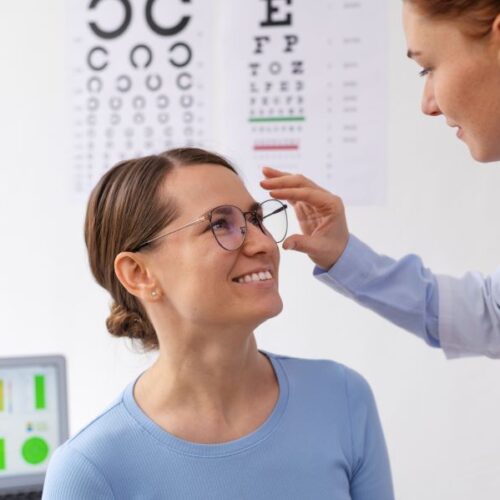Understanding the difference between various eye conditions is crucial for eye health. Glaucoma and cataracts are two of the most commonly confused eye diseases. In this post, we will discuss the difference between cataract and glaucoma.
Cataracts, which cloud the eye’s lens, and Glaucoma, which affects the optic nerve, pose unique challenges to vision. Despite the fact that both conditions can impair vision, their causes, symptoms, and treatments are quite different. Find out how cataracts and glaucoma differ so you can make informed decisions.
Glaucoma vs Cataracts: The Difference Between Cataract and Glaucoma
출처: freepik
The following is a list of the key difference between cataract and Glaucoma to increase awareness and understanding of these eye conditions.
Pathophysiology
- Cataracts: Cataracts gradually cloud the eye’s lens over time, which differs from Glaucoma. The cloudiness is often caused by aging or prolonged exposure to ultraviolet light. Consequently, it compromises visual clarity because it obstructs the passage of light through the lens.
- Glaucoma: Glaucoma, on the other hand, causes optic nerve damage due to increased intraocular pressure. The buildup of aqueous humor, the eye’s fluid, is frequently associated with increased pressure, defining the difference between cataract and Glaucoma.
Symptoms
- Cataracts: Manifestations of cataracts result in a variety of visual disturbances. In addition to blurry vision and increased light sensitivity, cataracts can cause difficulty seeing at night, faded colors, and frequent changes in eyeglass prescriptions.
- Glaucoma: Known as the “silent thief of sight,” it progresses unnoticed until advanced stages. Symptoms include peripheral vision loss, ocular pain, headaches, and the perception of halos around lights, further emphasizing the symptomatic difference between cataract and Glaucoma.
Onset and Progression
- Cataracts: Symptoms of cataracts often worsen over time as the condition develops. A cataract surgery implant lens with an artificial lens offers a high-quality yet routine treatment option.
- Glaucoma: The progression of Glaucoma is variable, often progressing gradually. Vision loss may be irreversible in advanced stages, so early detection is essential. The treatment landscape encompasses both medications and surgical interventions for Glaucoma, another critical difference between cataract and Glaucoma.
Risk Factors
- Cataracts: In addition to age, diabetes, smoking, and exposure to the sun all contribute to cataract development. Understanding the difference between cataract and Glaucoma requires acknowledging these risk factors.
- Glaucoma: Risk factors for Glaucoma include age, family history, high intraocular pressure, and specific medical conditions like diabetes. Identifying and addressing these risk factors emphasizes the need for tailored prevention measures.
Prevention and Treatment
- Cataracts: Lifestyle choices such as wearing sunglasses, quitting smoking, and managing health conditions can prevent cataracts. The most effective treatment for cataracts is cataract surgery implant lenses, which form a significant difference between cataract and Glaucoma.
- Glaucoma: A vigilant eye examination is crucial for early detection. Treatment options focus on lowering intraocular pressure through medications, laser therapy, or surgical interventions.
Prognosis
- Cataracts: Cataracts have an excellent prognosis with timely intervention. It is possible to restore a high level of clarity through cataract surgery implant lenses, demonstrating a positive result for patients.
- Glaucoma: Early detection and management of the disease are paramount to preserving vision. While a cure remains elusive, effective treatment can successfully control the condition and prevent further optic nerve damage,
Understanding these difference between cataract and Glaucoma is crucial for effective treatment, early intervention, and prevention.
What If I Had a Cataract?
출처: freepik
You may wonder about treatment options when you experience blurry vision, glare sensitivity, or difficulty seeing at night due to cataracts. Today’s medical advancements have made cataract surgery a standard and effective treatment.
During this highly effective procedure, the cloudy lens is replaced with an artificial intraocular lens (IOL), improving vision significantly. Cataract surgery becomes a viable option after a comprehensive eye examination diagnoses cataracts. Ultimately, it allows for fine tuning vision after cataract surgery and improves quality of life.
However, you may experience astigmatism after cataract surgery, which could cause your artificial lens to move enough to cause blurry vision. In this case, toric intraocular lenses effectively treat astigmatism after cataract surgery, a standard refractive error. It’s designed to reduce after cataract surgery astigmatism by reducing irregularities in the cornea that cause astigmatism.
If you’re considering cataract surgery and are concerned about after cataract surgery astigmatism, consult your eye care professional. This approach ensures a personalized approach to your cataract surgery and treats after cataract surgery astigmatism.
GS Eye and Cataract Surgery Explained

출처: freepik
Our goal at GS Ophthalmology is to provide specialized care for cataracts and other eye issues. With 18 years of surgical experience, we focus on thorough examinations and successful surgical interventions tailored to each patient.
Cataract surgery involves selecting the right lens according to your eye type. We specialize in 1:1 customized surgery at GS Ophthalmology. It involves choosing the most appropriate lens type and surgical method for your eye condition.
A key aspect of our approach is using the Femto Laser during cataract surgeries. Compared to traditional medical knife and surgeon techniques, this advanced technology minimizes after cataract surgery astigmatism.
Our goal at GS Ophthalmology is to provide more than just routine procedures. Furthermore, we consult on training eyes after cataract surgery to improve the quality of daily life and fine tuning vision after cataract surgery.
If you are considering fine tuning vision after cataract surgery, GS Opthomology should be your first choice in Korea.
What Makes GS Ophthalmology Cataract Surgery Unique
출처: freepik
We at GS Ophthalmology are committed to providing comprehensive eye care, fine tuning vision after cataract surgery to improve quality of life.
Customized Approach
The GS Ophthalmology team understands each patient has unique needs. We do not perform cataract surgery the same way for every patient. Our customized approach tailors the surgery to your needs, determining the right method and advanced cataract surgery implant lenses.
Surgical Precision
Our team is committed to surgical precision with 18 years of experience. Therefore, we ensure both success and optimal results from our surgical interventions.
Femto Laser Technology
We use advanced Femto Laser technology to perform cataract surgery. In contrast to traditional methods, the Femto Laser minimizes after cataract surgery astigmatism. In addition to successful cataract surgery, GS Ophthalmology offers a journey tailored to your visual well-being with the latest in cataract surgery implant lenses.
Comprehensive Care
We provide comprehensive care, from diagnosis to recovery, at GS Ophthalmology. For fine tuning vision after cataract surgery, our team provides training after cataract surgery. We make sure you’re informed, supported, and confident every step of the way.
Patient-Centric Philosophy
We place a high priority on your comfort and satisfaction. We prioritize open communication, involving you in decision-making, and addressing any concerns you may have.
Consider a Cataract Surgery Consultation at GS Ophthalmology
We rely on our eyes to connect us with the world, and their care is paramount. Successful eye treatment requires a blend of surgical experience and state-of-the-art equipment. With 18 years of experience, we’re committed to personalized exams and successful surgeries at GS Ophthalmology.
GS Ophthalmology is trusted by many, including celebrities who share their experience on platforms like Instagram. Additionally, we provide one-on-one consultations to broaden the reach of our Korea eye surgery expertise.
The GS Eye Center streamlines processes, offering same-day consultations and surgeries. With diverse experiences, our medical staff ensures successful Korea eye surgery recovery. Beyond surgical precision, we emphasize comprehensive aftercare, including training eyes after cataract surgery.
For information on post-surgery topics like exercise and flickering, contact GS Ophthalmology for a Korea eye surgery consultation.
? Cataracts surgery and Presbyopia | Symptoms, Diagnosis, and Treatments
The Takeaway
It is crucial to understand the difference between cataract and Glaucoma. Clouding of the lens causes cataracts, while increased intraocular pressure causes Glaucoma. Diagnosis and treatment of both conditions require different approaches. Exploring these nuances highlights the importance of tailored eye care.
Those considering cataract surgery may find that fine tuning vision after cataract surgery opens new possibilities. So, if you are looking for the best Korea eye surgery center for cataract surgery, contact GS Opthomology today.
What is Cataracts and how to treat Cataracts?
The Cataracts occurs when the natural lens at the back of the iris and pupil becomes cloudy. The most effective way to treat cataracts is to under go cataract surgery to restore vision by removing and replacing the cataract-affected lens with an artificial one.
Where should I get my eye surgery in Korea?
GS Eye Clinic in Seoul, Korea, is at the forefront of the latest technological advancements in laser eye surgery, including cataract surgery, Smile Lasik, and Lasek. Please schedule a consultation with GS Eye Clinic today to explore your options via our KakaoTalk Channel or visit us at 8,15,16F, Mizin Plaza, 390 Gangnam-daero, Gangnam-gu, Seoul, Korea.
How much does eye surgery in Korea cost?
According to the Medical Tourism site's chart, Korea ranked second as the best destination for laser eye surgery because of its advanced technology and affordable price. The total cost for both eye surgeries in Korea is lower than that in other countries. Don't hesitate to contact GS Eye Clinic via our KakaoTalk Channel for more information about the total price of eye surgery in Korea.
GS Ophthalmology Center
Directions 8,15,16F, Mizin Plaza, 390 Gangnam-daero, Gangnam-gu, Seoul, Korea










